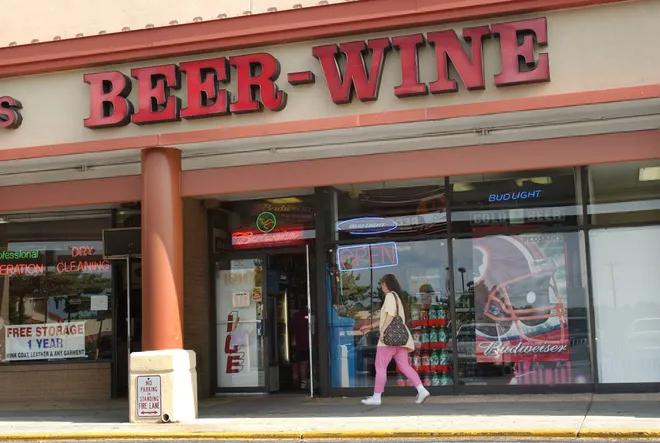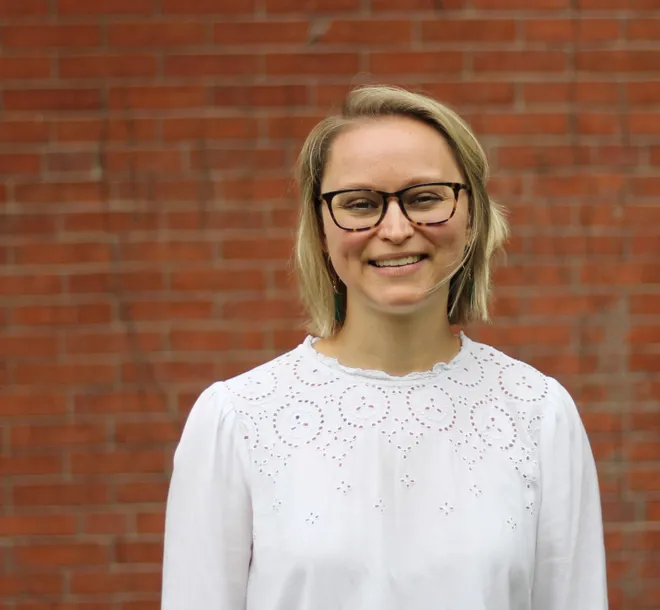Dry January isn't just for problem drinkers. It's making me wonder why I drink at all.
I’ve never been much of a drinker, so Dry January doesn’t mean much to me. But it does get me thinking about why I drink at all.
Dry January has become a classic way we prove to ourselves and others that we value our health and are in control of our drinking. Some say the concept started during World War II when the Finnish government asked its people to abstain from alcohol to save national resources. But Dry January as we know it began in the United Kingdom in 2013.
My story with alcohol starts like many of ours: with religious roots. I grew up in an evangelical Christian home. My family didn’t actually see alcohol as sinful – there was always wine and beer on holidays – but my parents also didn’t drink. Ever a rule-follower, I didn’t drink until it was legal (though, I must admit, that was in Europe at age 20).
Once I was 21, I drank responsibly. But I’ve come to realize that I also drank intentionally: to push back against broader religious norms about alcohol.
From religion to money, alcohol has its problems
See, for many of us, our views on alcohol are rooted in our religious beliefs. For example, most Muslims do not drink. Evangelical Christians often consider consuming alcohol morally wrong. And yet, Catholics and other Christian denominations use wine during their religious services. Jesus even turned water into wine at a Jewish wedding.
While I was drinking safely, I was also drinking on purpose. I wanted to show the world that Christians aren’t all hard noses about alcohol, and I wanted to show Christians that you can follow Jesus and enjoy a gin and tonic with dinner. It was a deliberate – albeit subconscious – statement.
Trump, Biden have one thing in common:Neither drinks. That's rare for presidents.
And yet, as I get older, I find myself drinking less and less. The once-a-week glass of wine has become once a month. Or once every couple months, if I’m honest. This Dry January, I’m reflecting on why.
The first is that alcohol is just expensive, full stop. Yet we keep buying it. In 2022, Americans spent an average of $204 per person on drinks in bars and restaurants and $113 and $104 per person on wine and beer at home, respectively.
The self-reported savings during Dry January are significant. A study out of the University of Sussex found that 88% of those who participated saved money. A personal essay showed that the author saved $350 during her Dry January, and that a friend of hers saved more than $16,500 in the first two years of going completely sober.

Frankly, life is expensive enough without alcohol. Student loan debt is crippling, and the housing market is impossible.
Of millennials, born between 1981 and 1996, three-quarters say they have a financial disadvantage compared with older generations, and more than half of Generation Z, spanning 1997 to 2012, is “extremely worried” about money. This feels like reason enough to reconsider the next happy hour.
Alcohol just isn't good for our health
Perhaps even more important, alcohol is just bad for us. Americans are very health-conscious, at least superficially, but we struggle to accept that alcohol isn't good for us.
It has direct and indirect negative impacts on our health. Alcohol hurts our livers and hearts and increases the risk of many cancers. It’s also just empty calories. Indirectly, it can lead to injuries, violence and relational conflicts through cognitive impairment.
Drunken driving:Should Americans who misuse alcohol lose the 'license to drink'? Here's how it could work.
Dry January participants report significant health benefits like weight loss, better sleep and increased productivity. The University of Sussex study found that more than three-quarters of participants also noted a better relationship with alcohol overall. So there seem to be real benefits associated with avoiding it.
The last thing I wrestle with is how ingrained alcohol is in American society.
We commit to Dry January to prove that we can do it – that we don’t need alcohol – but we go right back to it on Feb. 1. It’s a habit. Over 60% of Americans drink, with high earners and college graduates drinking the most. Mommy wine culture not so casually pushes the narrative that women can’t survive motherhood without alcohol. Beer consumption spikes around the Super Bowl, and we all toast the new year with a glass of bubbly.
We drink to feel good and to fit in. It’s the American way of having a good time.
What’s concerning, though, is that we know how dependency works. Alcohol can easily be abused, leading to addiction and alcoholism. Maybe we need to add a few drops of caution to that cocktail shaker.

All these things are influencing my personal relationship with alcohol. I still don’t think imbibing is sinful, but I do see other issues with it.
Thankfully, drinking less is having a moment. Terms like “sober curious” are catching on, and the mocktail scene is hot. There are now alcohol-free bars and liquor stores. Brands of nonalcoholic spirits are even getting celebrity endorsements.
I may not observe Dry January per se, but I am thinking a lot about alcohol this month. While complete sobriety isn’t for everyone, drinking less probably is, even for those of us who don’t drink much to begin with.
Elsa Pearson Sites, MPH, is the policy director for the Partnered Evidence-based Policy Resource Center with Harvard T.H. Chan School of Public Health.
Disclaimer: The copyright of this article belongs to the original author. Reposting this article is solely for the purpose of information dissemination and does not constitute any investment advice. If there is any infringement, please contact us immediately. We will make corrections or deletions as necessary. Thank you.







